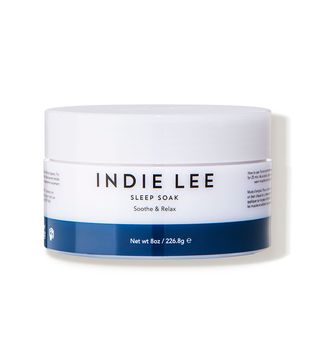9 Habits That Will Help You Get a Good Night's Sleep
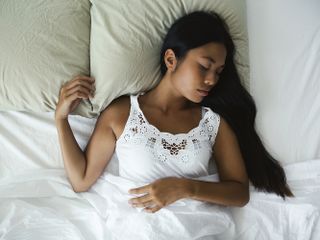
I don't have to tell you what you already know—but I will. Sleep is important. It's essential for your body to function. Sleep lets your body reset and recharge and helps you stay alert and energized the next day. So when your sleeping patterns are off, it can really disrupt a lot of things. You might feel cranky or moody. You're less alert, so you might make more mistakes at work. Your immune system could be lowered. Your memory could be impaired. And those are just some of the problems you might encounter.
Good sleep hygiene is the key to, well, better sleep. And there are plenty of things you can try to make sure you're doing your best to get a good night's rest. "Good sleep hygiene means having a bedroom environment and daily routines that support consistently high-quality sleep," explains Erica Zellner MS, CNS, LDN, senior health coach at Parsley Health. "Good sleep hygiene means you are positioning yourself to sleep well each and every night."
1. Get Outside

Zellner recommends getting outside in natural sunlight early in the day, ideally within 30 minutes of waking up. "In one study, people with insomnia improved sleep quality, duration, and reduced time to fall asleep drastically simply through bright light exposure for 12 consecutive days."
2. Avoid Blue Light Exposure
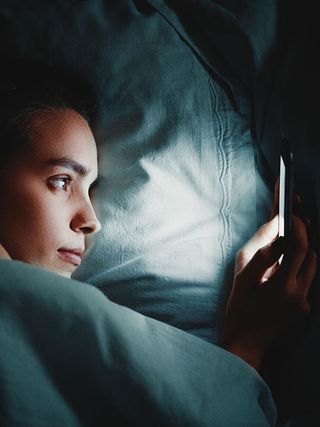
Think twice before you scroll or watch Netflix before bed. "Avoid blue light exposure in the evening. Light from electronics after the sun goes down tricks your brain into thinking that it's still daytime," Zellner says. "This can delay melatonin production and keep you from getting quality sleep. Ideally, we should be preventing blue light exposure completely after dark, but for most of us, it's more realistic to avoid electronics for 60 minutes before bedtime."
3. Maintain Consistent Sleep/Wake Cycles
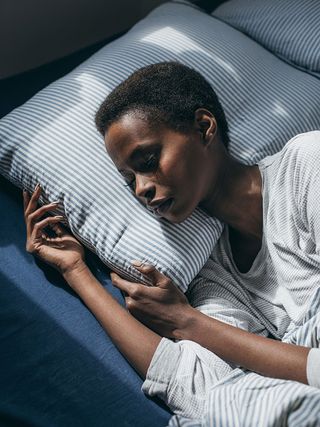
"Studies have shown that irregular sleep patterns can alter our circadian rhythm and melatonin production, causing suboptimal sleep," Zellner says. "By having a consistent (plus or minus 30 minutes) bedtime and wake time, you're supporting your circadian rhythm and increasing long-term sleep quality."
4. Consider Supplements
When trying to align your circadian rhythm, Zellner says you can consider taking some supplements that are beneficial for sleep. "Magnesium is one of the best supplements to start with. Many people are deficient in magnesium, and it's a critical cofactor for over 400 processes in the body! For sleep, try magnesium glycinate. This form of magnesium works in the muscles, resulting in a physically calm and relaxed feeling."
5. Create a Pre-Bedtime Routine
"Spend some time before bed engaging in stress reduction," Zellner says. "Having a pre-sleep routine that relaxes you can help you fall asleep faster and sleep more soundly throughout the night. Try to take at least 15 minutes to wind down. This can include listening to calming music, meditating, journaling, stretching or self-massage, or even taking a hot bath or shower."
6. Avoid Caffeine Late in the Day

That afternoon cup of coffee might help you get through your meetings, but it won't help you at night. "So many people falsely believe that their afternoon coffee isn't affecting their sleep, when in reality, it's a major factor," Zellner says. "The half-life of caffeine is five hours, according to the American Academy of Sleep Medicine. Half-life is the amount of time it takes for a quantity of a substance to be reduced to half the original amount. I recommend a cutoff by noon to ensure that caffeine is not disrupting sleep."
7. Get Some Exercise
Regular workouts can help with your sleep routine. According to the CDC, being physically active in the day can help you fall asleep more easily at night.
8. Avoid Large Meals and Alcohol Before Bed

Skip the four-course meal right before you go to sleep. If you're hungry, the American Academy of Sleep Medicine suggests eating a light, healthy snack. And the same goes for that nightcap—it might seem like a good idea and could put you to sleep faster, but that doesn't mean you'll get quality sleep. According to The Cleveland Clinic, when the alcohol starts to metabolize, the sedative starts to wear off, and you probably won't sleep for very long or very deeply, or you might sleep on and off. That means it can prevent you from getting REM sleep.
9. Use Your Bed for Sleep Only
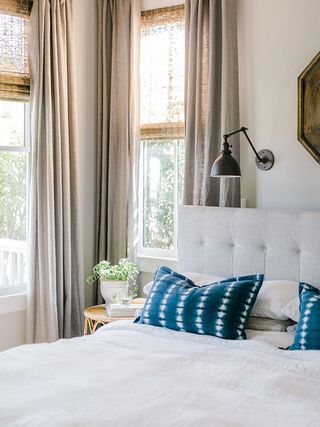
Well, sleep and sex, but nothing else, the AASM recommends. This will help your brain realize your bed is a place for rest.
When to See a Doctor
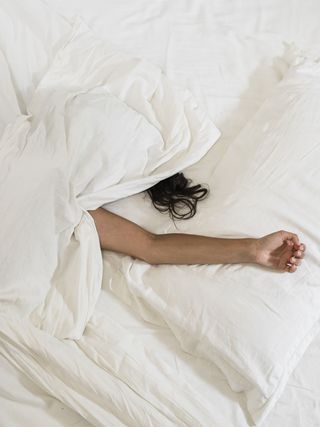
Some people might try all of these different sleep strategies and still find out that they can't get a good night's rest. That's when you probably want to see a doctor or healthcare professional. Zellner says there are more than 80 known sleep disorders that can affect your ability to get quality sleep, so it's important to know when sleep disruptions need professional attention.
"If you are dealing with chronic insomnia, meaning you have trouble falling asleep at night, trouble staying asleep, or are waking earlier than needed and unable to get back to sleep, then it is time to talk to your doctor. Additionally, if you find yourself falling asleep at odd times during the day, you should seek professional help," she says.
Regular, loud snoring is also a symptom you want to pay attention to. Zellner explains that it may be a sign of obstructive sleep apnea, which means that the soft tissue in your throat is constricting, which pauses in breathing. And if you find that you're always tired, even after getting enough sleep, you might want to check that out too.
Products That Could Help You Sleep
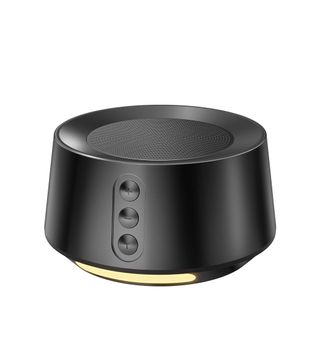
A white noise machine might be useful to keep in your bedroom. This one has 14 sleep soundtracks, including white noise, lullabies, and natural sound options. It comes equipped with a nightlight and auto-off timer settings.
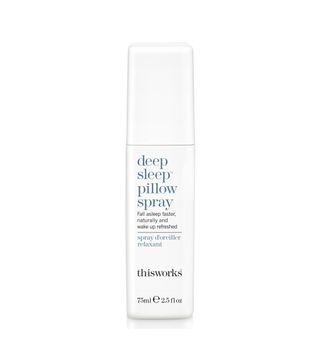
Just spritz this deep-sleep spray onto your pillow to help you calm down before bed. It's a blend of lavender, vetiver, and chamomile.

Some people find weighted blankets very comforting, like a nice, warm hug. This one from Casper is made with microbeads and 100% cotton.
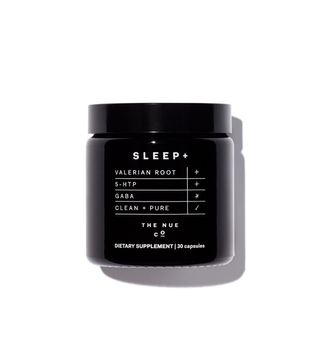
This supplement stimulates the production of melatonin. It's formulated with 5-HTP (which converts to melatonin), valerian root (to reduce anxiety), and GABA (to help you stay asleep).
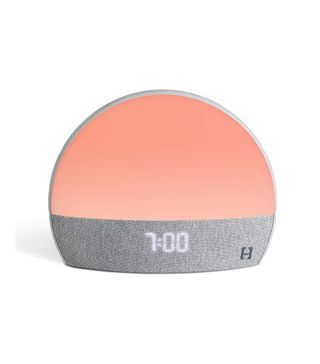
You can get so many different uses out of this device. It helps you set a sleep and wind-down routine through the companion app. And it acts as an alarm, sound machine, and reading light.

Use this on your body and linens to help you drift off to sleep. It's a blend of calming essential oils like vetiver, chamomile, and sandalwood.
Next up: How I Finally Trained Myself to Sleep on My Back
Disclaimer
This article is provided for informational purposes only and is not intended to be used in the place of advice of your physician or other medical professionals. You should always consult with your doctor or healthcare provider first with any health-related questions.
Sarah is lifestyle writer and editor with over 10 years of experience covering health and wellness, interior design, food, beauty, and tech. Born and raised in Los Angeles, she attended New York University and lived in New York for 12 years before returning to L.A. in 2019. In addition to her work on THE/THIRTY and Who What Wear, she held editor roles at Apartment Therapy, Real Simple, House Beautiful, Elle Decor, and The Bump (sister site of The Knot). She has a passion for health and wellness, but she especially loves writing about mental health. Her self-care routine consists of five things: a good workout, “me” time on the regular, an intriguing book/podcast/playlist to unwind after a long day, naps, and decorating her home.
-
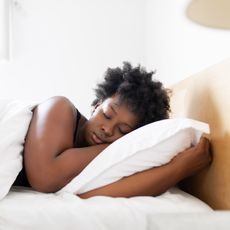 Add This 5-Minute Trick to Your Bedtime Routine to Fall Asleep Faster
Add This 5-Minute Trick to Your Bedtime Routine to Fall Asleep FasterYou'll be so relaxed.
By Sarah Yang
-
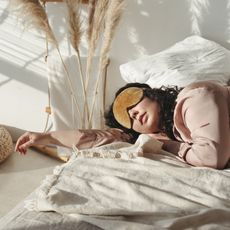 10 Things That Can Mess With Your Sleep—and What to Do About It
10 Things That Can Mess With Your Sleep—and What to Do About ItGet quality shut-eye.
By Sarah Yang
-
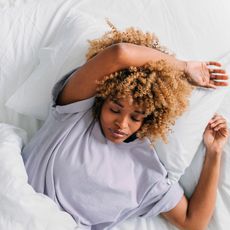 12 Natural Remedies to Try When You're Wide Awake and Want to Fall Asleep Fast
12 Natural Remedies to Try When You're Wide Awake and Want to Fall Asleep FastOff to dreamland.
By Sarah Yang
-
 After Just 4 Sessions, I'm Completely Hooked on This Ancient Wellness Treatment
After Just 4 Sessions, I'm Completely Hooked on This Ancient Wellness TreatmentIt's surprisingly relaxing.
By Drew Elovitz
-
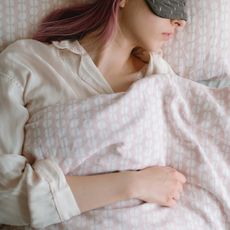 This Supplement Just Might Help You Get to Sleep Faster
This Supplement Just Might Help You Get to Sleep FasterAn option for your bedtime routine.
By Sarah Yang
-
 These Relaxing Yoga Poses May Actually Help You Fall Asleep Tonight
These Relaxing Yoga Poses May Actually Help You Fall Asleep TonightBreathe in, breathe out, and set your phone to airplane mode.
By Lindy Segal
-
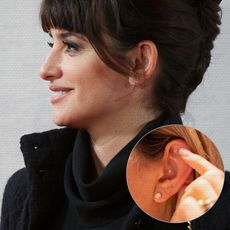 All About Ear Seeds, the Acupressure Secret That Could Ease Your Anxiety
All About Ear Seeds, the Acupressure Secret That Could Ease Your AnxietyThey’re a staple of traditional Chinese medicine.
By Lindy Segal
-
 CBN for Sleep: Everything You Need to Know About This Buzzy Ingredient
CBN for Sleep: Everything You Need to Know About This Buzzy IngredientHere's the 411.
By Sarah Yang



